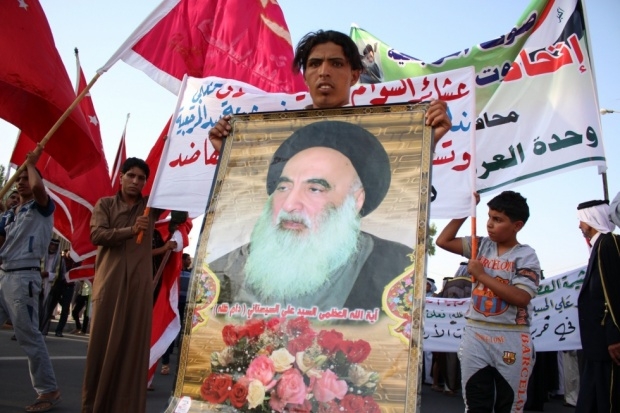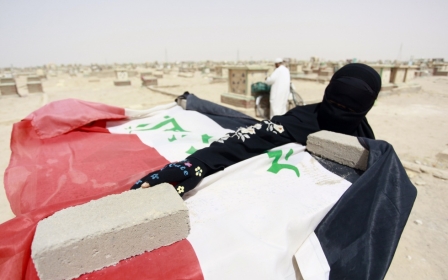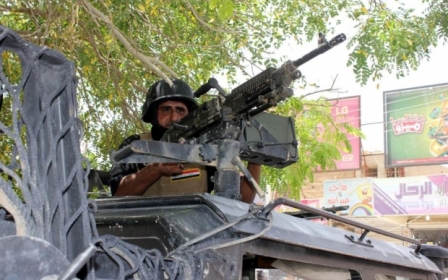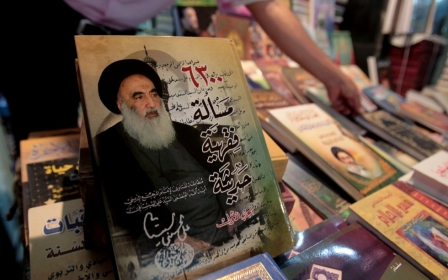Iraq Shiite clerics gain prominence as crisis continues

The holy Shiite city of Najaf has gained prominence as a centre of political and military power since the start of a crisis that has raised the spectre of Iraq breaking up along sectarian and ethnic lines.
Wracked by violence stoked by political instability, Baghdad is not high on the list of any Iraqi seeking safety, with many fleeing to Kurdish-controlled areas or the relatively stable south, home to Shiite-majority Iraq's holiest shrines and most powerful clerics.
Najaf has absorbed thousands of Iraqi Shiites fleeing violence, and its clerics have rallied thousands of Shiite fighters to bolster a flagging national army fighting a Sunni militant offensive that began on 9 June.
Thousands of Shiite volunteers were mobilised by a recent fatwa from Iraq's most revered Shiite cleric, Najaf-based Grand Ayatollah Ali al-Sistani, calling for jihad against the Islamic State, the first such edict in Iraq in more than 90 years.
Some 5,000 Shiite men have volunteered to take up arms to protect the shrine and its environs alone.
Thousands more have gone to bolster a national army that folded in the initial stages of the militant offensive, which began in the northern city of Mosul before spreading to other northern and western provinces.
"We've had so many applications, I've had to turn people away. Where are we going to put them all?" Sayed Shubr, 42, an expert in Chinese medicine and former member of the Iraqi army who now trains new recruits, told AFP.
Volunteers for 'martyrdom'
His company operates under the auspices of the national security forces and is entitled "In Service of Imam Hussein", part of a wider volunteer group that also includes a "martyrdom" unit for the most dangerous missions.
Sistani's fatwa was one of a string of recent pronouncements suggesting a more strident role for Iraq's top Shiite clerics, collectively known as the marjaiya, while the government of Baghdad flounders.
Parliament failed even to muster enough lawmakers to hold an emergency session in the days following the militant onslaught, or agree to a new government after April elections.
In a 20 June statement, Sistani called for the "formation of an effective government that is acceptable on a ... national level (and) avoids past mistakes" in a message seen as a rebuke to Prime Minister Nuri al-Maliki, considered by many as a divisive and sectarian leader.
The Najaf-based marjaiya have no choice but to step forward, said the son of, and spokesman for, Grand Ayatollah Bashir al-Najafi, another senior Shiite cleric.
"The new Iraq has its own situation and character, and those who drew Iraq's new map are the marjaiya," Sheikh Ali al-Najafi told AFP, referring to Iraq after the 2003 US invasion.
"The marjaiya does not want to control the country itself. But in times of emergency, and in difficult, critical times, they express an opinion."
Stay informed with MEE's newsletters
Sign up to get the latest alerts, insights and analysis, starting with Turkey Unpacked
Middle East Eye delivers independent and unrivalled coverage and analysis of the Middle East, North Africa and beyond. To learn more about republishing this content and the associated fees, please fill out this form. More about MEE can be found here.




